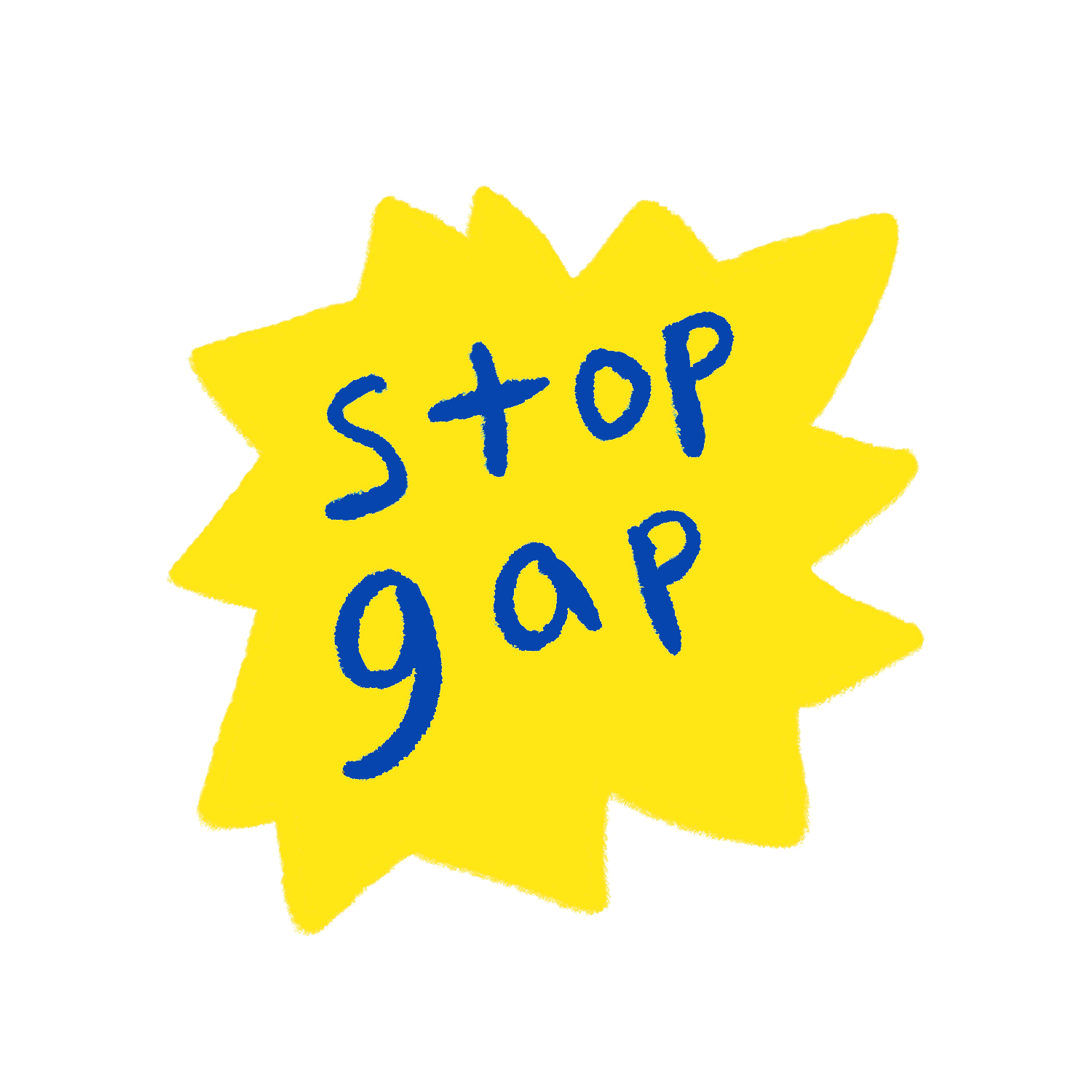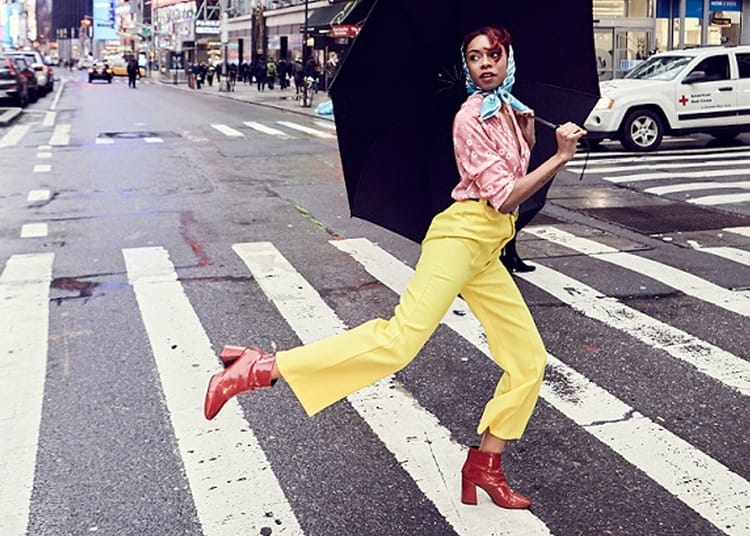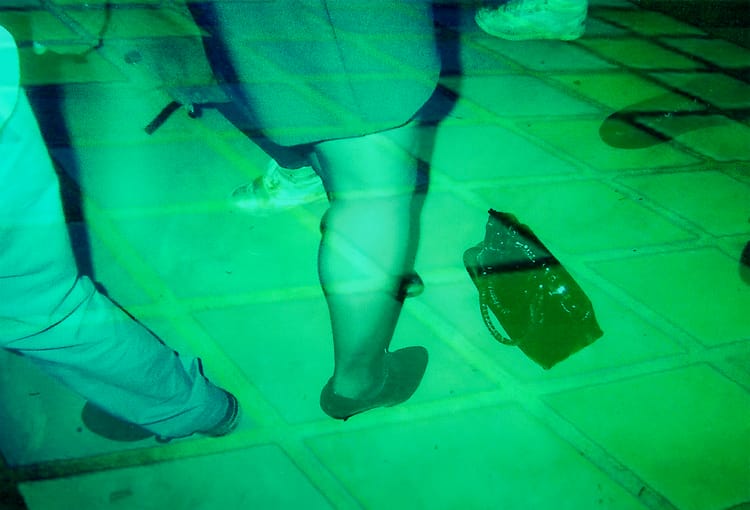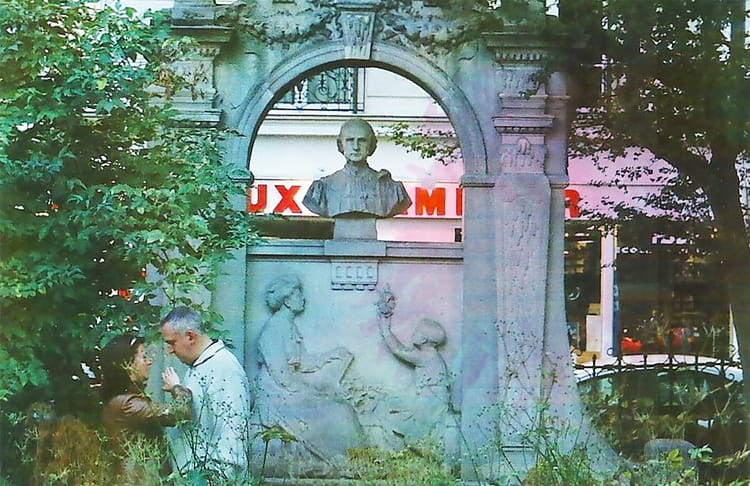Like A Plastic Bag

by Rosie Long Decter
Pride month is already long gone, but one piece of this year’s content parade lingers on my mind, like a bad date or a good Lex post. You might have missed Rolling Stone’s Pride-themed list of the 50 most inspiring LGBTQ+ anthems when it came out at the tail end of June. The list received some mocking upon publication, but mostly faded into the online abyss of SEO ephemera. Weeks later, though, I still find myself returning to it, wondering on repeat: “Firework”? At number three?
The list is bad, and, more than that, it is bizarre. Rolling Stone lists are famously fodder for clicks and debate, but this one is uncharacteristically lacking in context or methods. The introduction to the feature tells us that these songs represent “hope and freedom.” Accordingly, the list is populated with pop hits about courage, tenacity, and breaking free (Ariana Grande’s “Break Free,” #40; SIA’s “Bird Set Free,” #28). Many of these songs are from the last decade and many have little to do with queerness. A couple of them are genuinely offensive (Macklemore’s “Same Love,” #31).
Altogether it’s an odd mélange of 21st century top 40, classic anthems like “I’m Coming Out,” and contemporary releases by smaller queer artists, made stranger by the fact that Rolling Stone previously published a much better Pride list in 2019. This new ranking works more as an archive of 2010s empowerment-core than a source of queer inspiration.
Empowering anthems have long been a bankable mode of pop music, and gays have long adopted them as their own. But in the first half of the 2010s, as Lauren Elmore wrote at the time, they dominated the airwaves with particular zeal and were often marketed to LGBTQ+ listeners. In her book Resilience and Melancholy, Robin James characterizes this era of pop as devoted to a feminine subjectivity that announces: “Look, I Overcame!” Empowerment-core instructs listeners to be strong, to turn damage into value, to not only get over it but get better. This music doesn’t just preach empowerment, it feels empowering, borrowing uplifting synths and dopamine-filled drops from dance music. By the time the chorus lands on “Firework,” how could you possibly still feel like a plastic bag? Such ostensible gay anthems work just as well for a girlboss revving up to ask for a promotion as they do for a queer kid working up to coming out.
I was a closeted teenager when a lot of these songs dropped. I did not understand “Firework” as encouraging my Gay Journey (I have many Glee cast recordings to thank for that). The subtext was so subtextual that it did not even register for someone who read queer fanfiction. Some empowerment-core had more explicit connections to queerness: Ke$ha’s infectious “We R Who We R” (#29) was written after a series of suicides by queer teens; Sara Bareilles’ supermarket soundtrack “Brave” (#8) was inspired by a friend’s coming out process. Even still, I understood these songs as preaching a vague gospel of doing it yourself, encouraging me to handle my shit more than to tell the girl I liked that I thought she had a pretty smile.

I don’t mean to shame anyone who did find these songs helpful (Gleeks cannot cast stones). I’m more fixated on the cultural processes by which empowerment-core has become fodder for an LGBTQ+ canon. The 2010s mainstreaming of gay rights as a cause célèbre worked to marry gay aesthetics to (neo)liberal capitalist themes of self-love and self-advancement—an unholy union. Mainstream feminism underwent a similar transformation. Sarah Banet-Weiser, in her book Empowered, characterizes the popular feminism of the last decade as a kind of media that promoted investments in confidence and self-esteem.
Love your body, the soap ads instructed. Love is love, the banks insisted. These aesthetic programs acknowledged problems like sexism and homophobia, but the solution was to love yourself harder, to bounce back stronger. (See: “Stronger” by Britney Spears #37; “Stronger” by Kelly Clarkson #48). If you just ignored the haters, you would be free. Or, at least, a functional subject of capitalism, strong enough to work another day. This was the music of queer individualism, not queer liberation.
The Rolling Stone list pays tribute in part to this era of the individual, featuring a host of songs written in first-person-singular or second-person-descriptive: I am free! You are brave! Community is present but muted here, as is desire; loving literally anyone else plays second fiddle to the more urgent issue of loving yourself. These songs are dutifully earnest. They are not inspiring anyone to get laid.
Give us Sylvester’s sensuality, SOPHIE’s playfulness, Tracy Chapman’s intensity, or at the very least King Princess’ horniness. In defining gay rights via personal strength, 2010s empowerment-core worked to separate queerness from actual sucking and fucking, opening space for conservative hand-wringing over fetish gear at Pride and cries of “what happened to love is love?”
Amidst a wave of anti-queer legislation, the Rolling Stone list seems to arrive already out of date. It’s a curious callback to a time when corporations were eagerly changing their logos to rainbows rather than balking at supporting trans influencers. In 2023, empowerment-core and its aesthetic objects are anachronistic. So, yes, the list is bad, but it was doomed from the start by reducing inspiration to empowerment, queer culture’s most co-opted value. Must we always be getting stronger, plastic bags turning perpetually into explosives? The “most inspirational LGBTQ+ songs of all time” is an exercise in liberal commercialism’s most pallid and nonbiodegradable aesthetic.




Comments ()